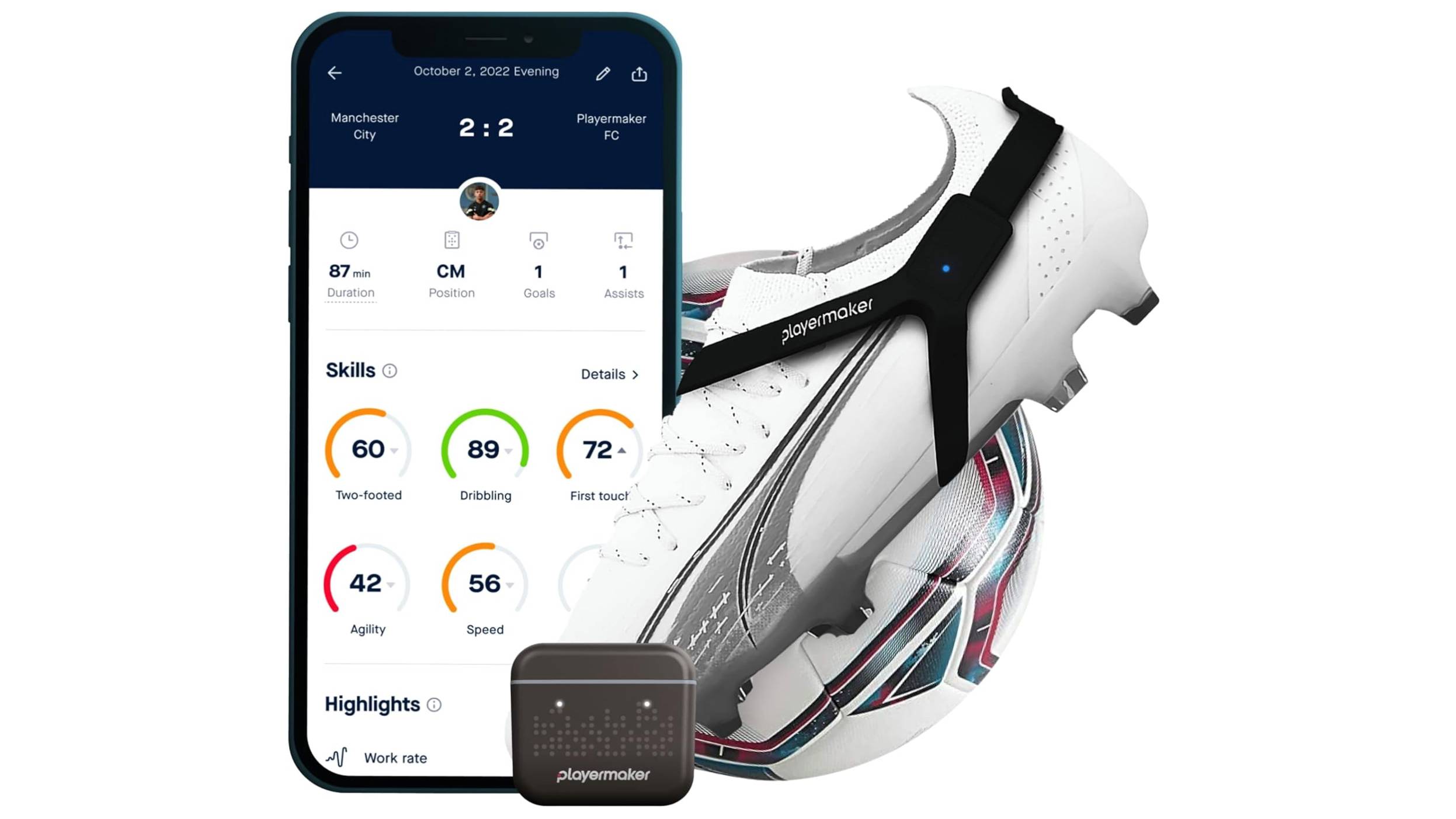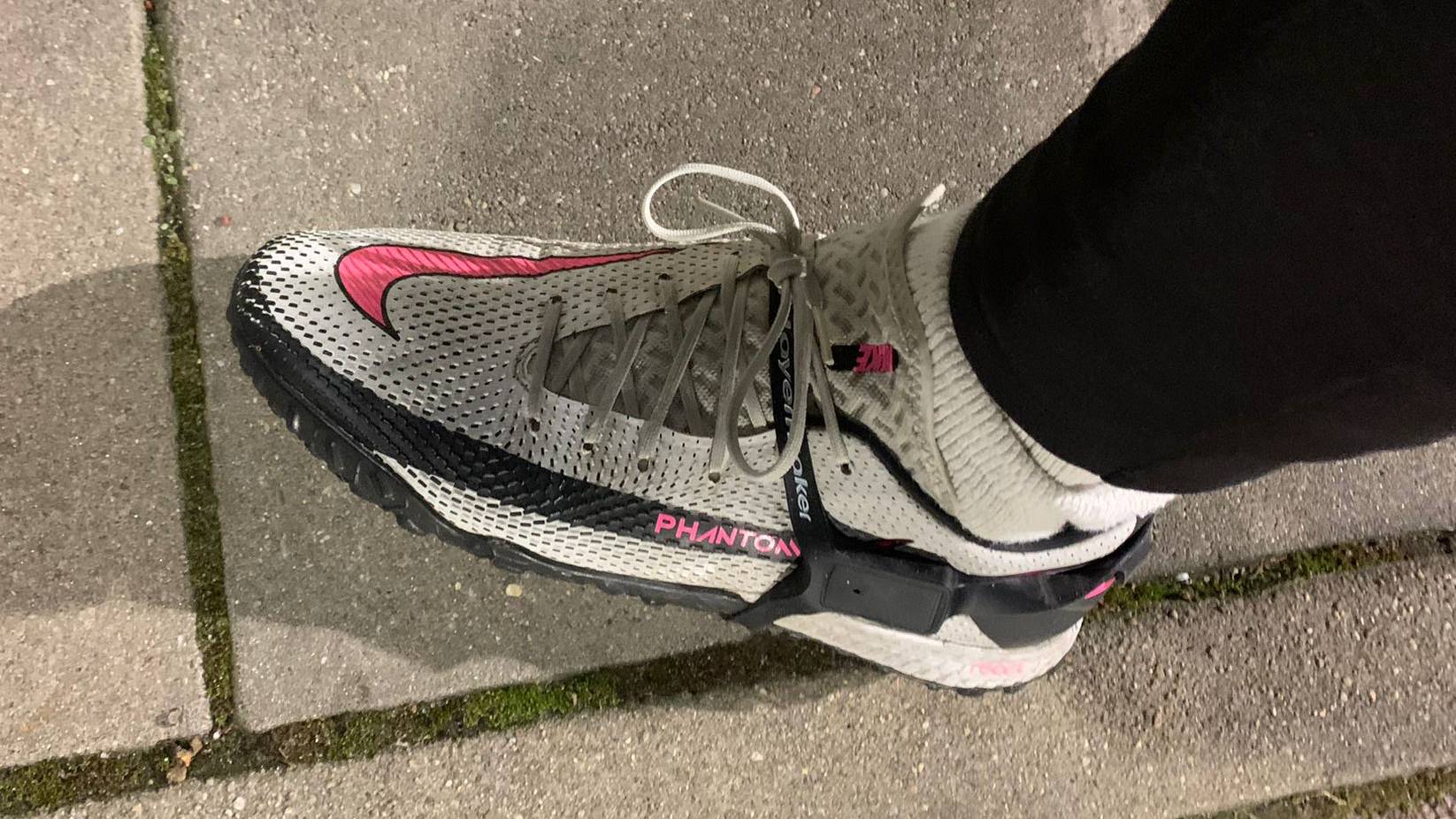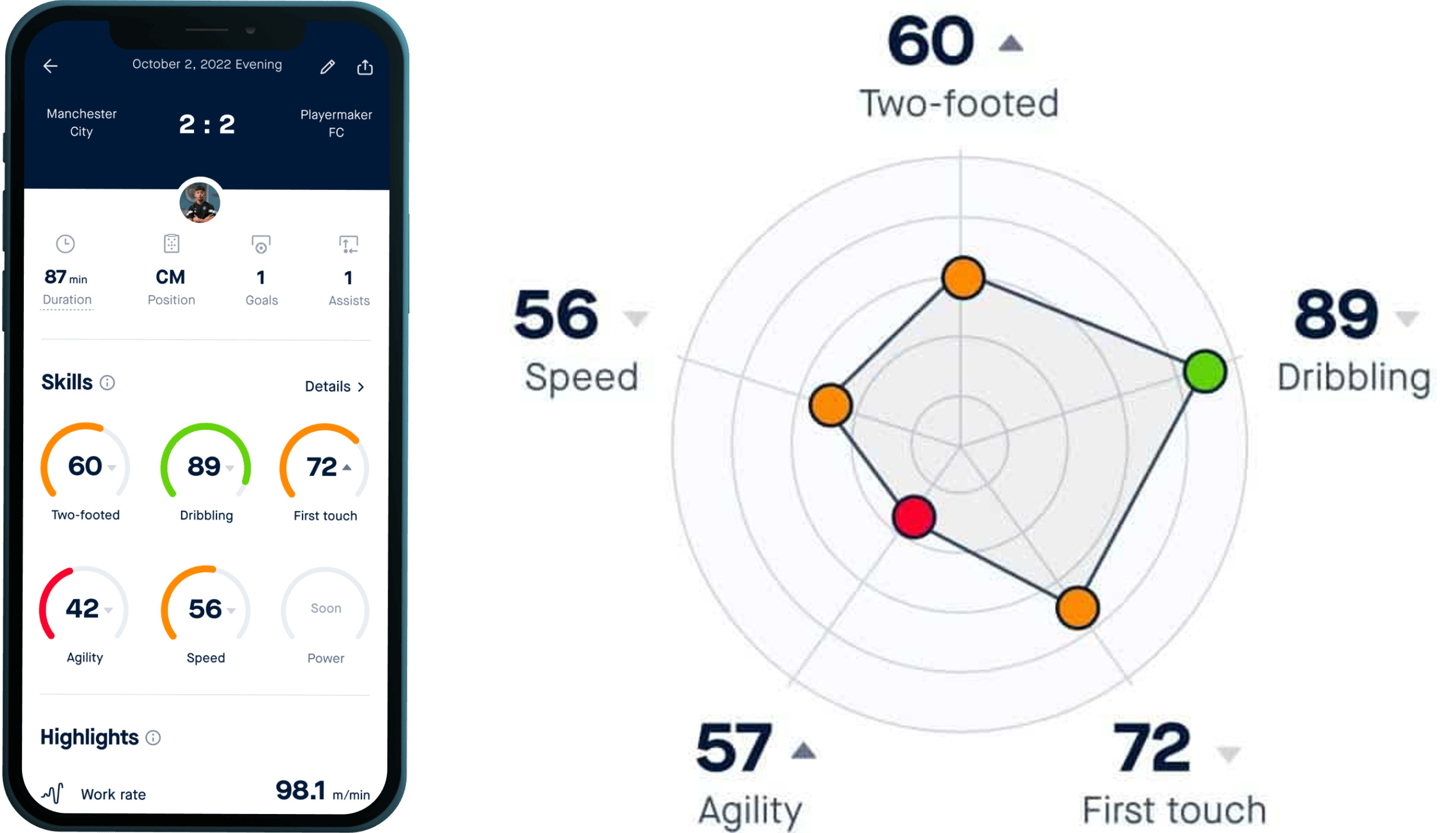
Standing out from the crowd as a footballer isn't easy. It's the most popular sport worldwide and pretty much everybody grows up hoping they'll make it to the top level. Finding that edge could provide all the difference between a professional career and turning gout for the Dog & Duck on Sundays.
It's all well and good putting in the extra hours at training, staying fit and eating right, but if you aren't able to pinpoint the areas you need to improve on, you're unlikely to know where those extra hours should be spent.
CityPlay aims to provide those answers. The state of the art technology give instant feedback to footballers after every training session and game – breaking down the stats and literally showing you your strengths and weaknesses.
The software, developed by Manchester City, maps out your entire game, in easy to understand metrics, and places it in the palm of your hand. FFT couldn't wait to give to give it a whirl...

- CityPlay by Playermaker on playermaker.com for €189
CityPlay review
When unboxing the PlayerMaker hardware that works in unison with CityPlay, FFT finds two rubber bootstraps, plus a small case which resembles the kind which Apple iPods come in. Inside the latter is two chips, labelled for left and right, which slot into the rubber bootstraps. Once charged for half an hour with a USB C cable, we put the chips in the straps and, before leaving home for football training, fit the straps around our boots.
It’s worth noting that, while the straps are designed to work in all weather conditions and on any kind of surface. FFT is training in the bleak midwinter, in astroturfs, on a 3G pitch, so we’re grateful not to have to wear studs to test them out.
Once fitted onto your foot, the chips are held just below your outer ankles. This is a great thing as it’s not a part of your boot you ever use during football matches and so they’re unlikely to cause any issues. The straps themselves – black on white boots in this instance – are also not easily spotted, meaning you can go about your business without people wondering what you’re wearing.
Before training, FFT has also downloaded the CityPlay app and registered. An annual subscription to the service costs £180 – no small sum but, if it's effective in taking our game to the next level, it could prove a bargain.
When setting up a profile, you’re asked a series of questions in order to build a profile. I input my age, gender, favourite position on the pitch, dominant foot, and, charmingly, the name of my club and which team I belong to (as in: first team, reserves, or a specific age category). Even filling in this data is mildly enjoyable – like creating your own player on EA Sports FC.
Once set up, you’re taken to your profile page, featuring a skill graph that, once filled, will show scores for the following five attributes: two-footedness, dribbling, first touch, agility and speed (there are literally dozens of other attributes you'll be scored on, but these are the main five that appear on your profile page). Beneath, you’ll also be scored for the number of matches, training sessions and overall minutes you spend using the technology.
We trained for 90 minutes – a session which included a warm-up, some agility drills, shooting practice, short-sided games and then a larger eight-vs-eight match on half a full-sized pitch – before eagerly scampering back to the bench to discovering our stats. FFT had told a couple of mates about the tech and so we all gathered round to have a look at my scores.

You may have seen videos in the past of professional footballers reviewing their own FIFA or EA Sports FC stats cards and bemoaning aspects of it (“I’m way better at passing than 78, that’s a joke!”). Well now you can do that too. As a friend pointed out, however, this was a pointless task. The app doesn’t care what you think and your score is your score and, besides, everyone found it both accurate and hilarious. One of FFT's team-mates even asked if he could wear it at training next week. You can guess the response…
We went home that night and couldn’t help but stew about our score for shooting. It hadn’t been terrible but it was now obvious that it needed work and, after the next session the following Tuesday evening, FFT took a bag of balls and spent 20 minutes pinging shots at a goalkeeper, trying to improve with our left foot especially. Once we managed to get that score up, dribbling will be next.
The app also stores personal records, from shot power and top speed, top distance covered and in-game touches. What's more, you can share your profile with friends and team-mates and track your own process over longer periods, with graphs and tables showing you how your game is progressing. FFT is looking forward to making the most of these smart additions throughout the season.
All things considered, the app is a huge success. Seeing your weaknesses clearly, in an easy-to-read graph, and watching those improvements is a thrilling, oddly addictive experience.
While we do think overloading very young kids with stats and piling pressure on them to improve is a worrying notion – football at that age is meant to be fun, after all – CityPlay offers an incredible resource to slightly older footballers who want to challenge themselves to be the best that they can be. The app can’t improve your game directly – it merely shows you where improvements can be made – but taking those stats to a coach could save time when narrowing down areas of improvement.
Technology plays a huge part in our lives already, helping us to improve our fitness, diets, organisation and even our love lives. It seems crazy not to use what we can to improve ourselves as footballers as well. CityPlay makes that as simple and as fun as possible.







